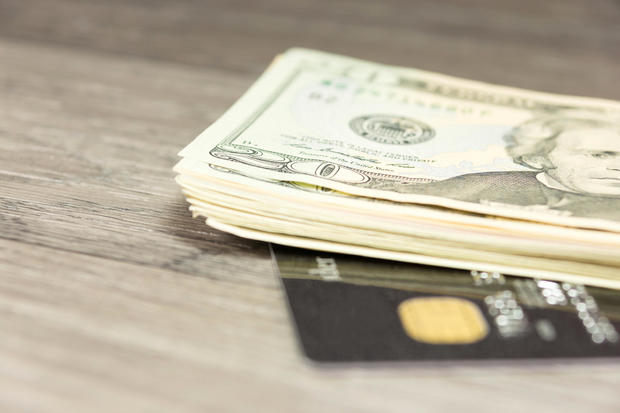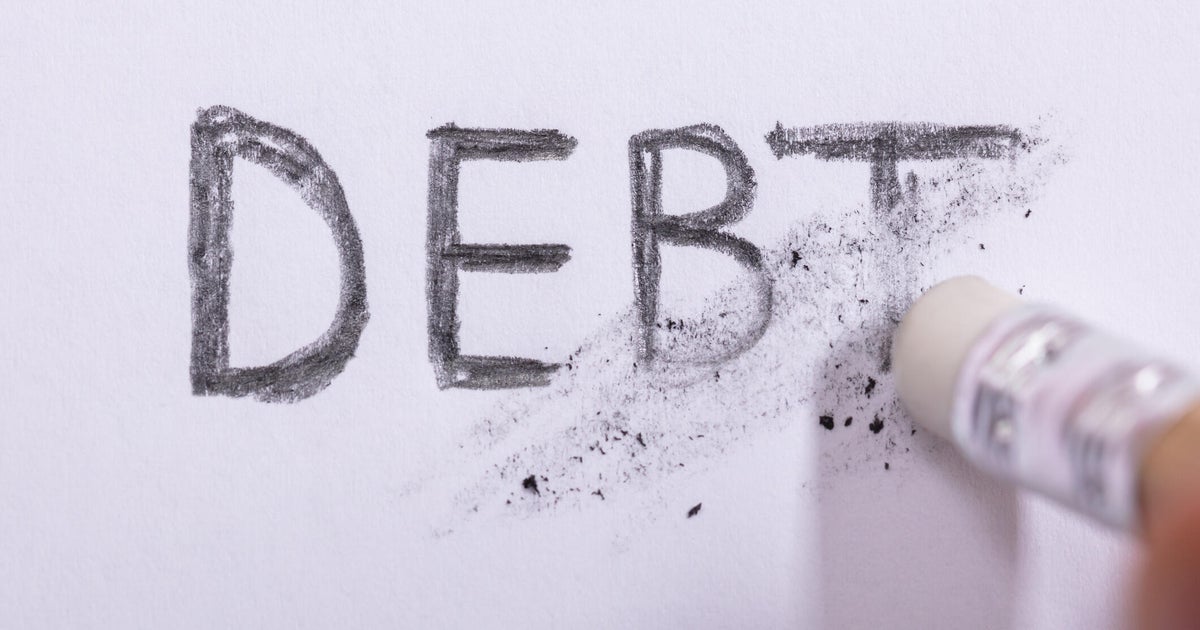Will credit card debt forgiveness cover my $20,000 debt?
Credit card debt can be a hefty financial burden — and it's one that millions of Americans are carrying right now. During the second quarter of this year, the total amount of credit card debt nationwide was $1.14 trillion, an all-time high, and the average cardholder was carrying about $8,000 in card debt. But while issues with card debt may be common, it can still be a stressful and expensive problem to deal with — especially as the balances grow and the interest compounds.
As a result, many cardholders are looking for solutions to break free from this cycle of debt. One option is credit card debt forgiveness, also known as debt settlement. This approach focuses on reducing the total amount you owe on your credit cards — and can, in some cases, cut down your card debt by 30% to 50% or more. That can make debt forgiveness seem like a lifeline for those who can't pay off what they owe, as it can vastly reduce your card balances and help provide a fresh start.
However, the reality of credit card debt forgiveness is more complex than it might appear. While it can be a powerful tool for managing overwhelming debt, it's not a guaranteed solution, nor is it right for everyone. So can it help those facing significant credit card balances, such as $20,000 or more? That's what we'll break down below.
Start tackling your credit card debt today.
Will credit card debt forgiveness cover my $20,000 debt?
The short answer is yes, credit card debt forgiveness programs can potentially cover a $20,000 debt. In fact, most debt relief companies that offer this type of program will typically expect their clients to have at least $7,500 in credit card debt before enrolling. A $20,000 debt falls well within the range that these programs are designed to address.
However, it's crucial to understand that debt forgiveness is not guaranteed — no matter what your total credit card balance is. The success and extent of the debt reduction you'll get through debt forgiveness depend on several factors, including:
- The individual card issuers: Each credit card company has unique policies regarding debt forgiveness. Some may be more willing to negotiate a lower lump sum settlement than others.
- The age of the debt: The older your debt is, the higher the chances that you can settle it for less than what you owe. Generally, the longer an account has been delinquent, the less likely it is to be paid in full and the more likely the creditor is to accept a settlement.
- Your financial situation: Creditors are more likely to settle if they believe you're genuinely unable to pay the full amount, so being upfront about the financial hardships you're facing can have a big impact on the outcome.
- The negotiation skills: The effectiveness of the debt settlement company you work with on debt forgiveness — or the skill behind your personal negotiation efforts — can significantly impact the outcome.
- The economic conditions: Broader economic factors can influence creditors' willingness to settle debts.
It's also worth noting that while a significant portion of your $20,000 debt could potentially be forgiven if you take this route, it's important to approach debt settlement with realistic expectations. Some debts may be settled for less than half the original amount, while others might only see a small reduction. In some cases, creditors may refuse to settle at all.
Get rid of your expensive credit card debt now.
Other options for getting rid of $20,000 in credit card debt
While debt settlement can be an effective solution for some, it's not the only option available for managing $20,000 in credit card debt. Here are several alternatives to consider:
- Debt consolidation: Debt consolidation loans allow you to combine multiple credit card debts into a single loan, often with a lower interest rate. This can make your debt more manageable and potentially save you money on interest over time. However, you'll need a good credit score to qualify for the best rates.
- Balance transfer credit cards: Some credit cards offer introductory 0% APR periods on balance transfers, with promotional rates typically lasting from 12 to 21 months. Transferring your $20,000 debt to such a card could give you time to pay down the balance without accruing additional interest.
- Debt management: Credit counseling agencies offer debt management programs where they negotiate with your creditors to lower interest rates and possibly waive fees. This option can help you pay off debt faster without the credit score impact of debt forgiveness.
- Personal bankruptcy: Bankruptcy can provide a fresh start for those with overwhelming debt. It can have significant long-term impacts on your credit, though, and whether or not the benefits outweigh the risks should be considered carefully.
When considering these options, it's important to assess your financial situation, including your income, expenses, credit score and long-term financial goals. After all, each method has advantages and potential drawbacks, and what works best for one person may not be ideal for another.
The bottom line
While credit card debt forgiveness can potentially help address a $20,000 debt, it's not a guaranteed solution, so it's important to do your research before committing. You may also want to weigh your other debt relief options during the process to ensure that you're making the right move for your unique circumstances. Remember, the goal isn't just to eliminate debt in the short term, but to establish a solid foundation for long-term financial stability and success.




